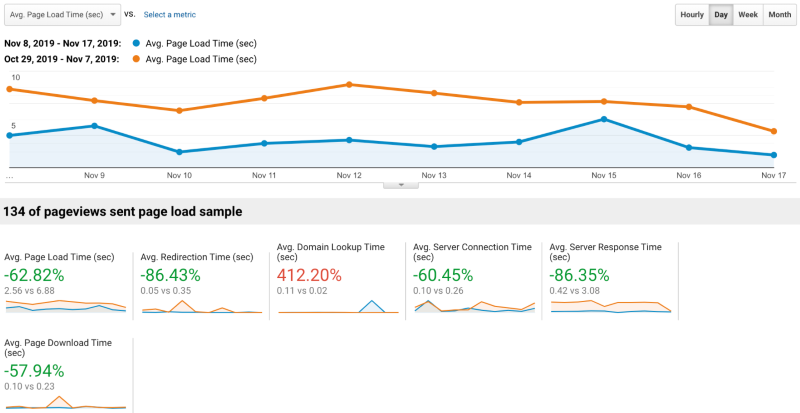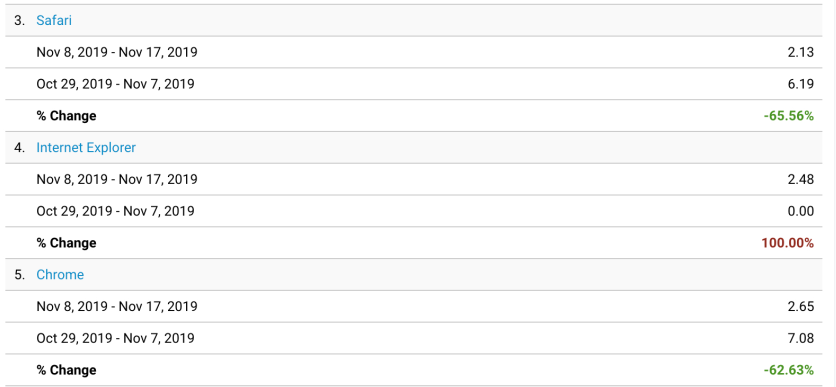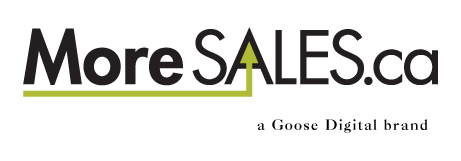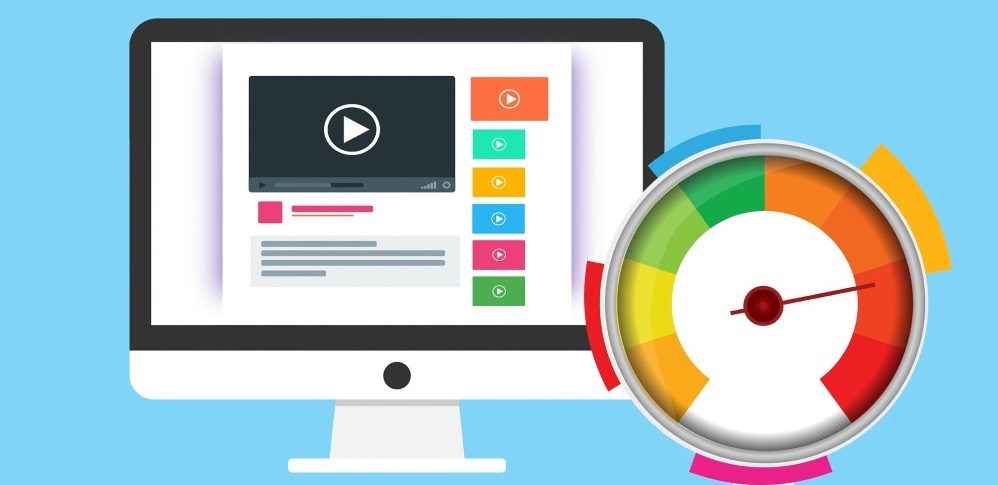Many B2B marketing teams think keywords are the most important factor contributing to search engine optimization (SEO) performance. In reality, search engines are getting smarter each day and now place less importance on keyword usage. While keywords still play a role, it’s becoming less critical in contrast to overall user experience. There are a growing number of factors used to determine user experience, but website speed remains a top consideration.
Website speed is a core component of SEO. Especially given the shift towards mobile internet use, even a 1 second delay can reduce page views by 11%. (Source: Hosting Tribunal)
With this trend in mind, organizations must deploy strategies that improve website speed and support a better user experience. Switching hosting providers can be one of the fastest and easiest ways to offer your company a “quick win” on SEO and user experience, but the additional cost may deter some small and medium-sized businesses. Without understanding the impact a hosting upgrade can provide, many marketing teams may be reluctant to consider this option.
To help you understand how WordPress website speed can be positively influenced by a higher-end hosting provider, consider the before and after stats we’ve seen from Homegrown Hydroponics.
Homegrown Hydroponics: Website Speed Optimization
Following a website re-design project in 2016, Homegrown Hydroponics became even better positioned for long-term growth. Their messaging, images, and overall website layout supported a great user experience. The website worked well, looked visually appealing, was built with SEO best-practices in mind, and focused on conversions so that users had a seamless process to learn more and get in touch with company representatives.
While the website’s aesthetics and usability improved, the website speed remained fairly similar. That’s because the website received considerable attention, but hosting was not part of the project deliverables.
Fast-forward to 2019. After launching the new website, it seemed there were still untapped opportunities to improve the site and further enhance SEO. That’s when it made sense to transition Homegrown Hydroponics to a faster host. Having migrated their website to WP Engine, the results immediately indicated that the improvement was worth it.
What happened exactly? Check out these amazing metrics:
- Average Page Load Time: 62.82% improvement (2.56 seconds vs. 6.88 seconds)
- Average Redirection Time: 86.43% improvement (0.05 seconds vs. 0.35 seconds)
- Average Server Connection Time: 60.45% improvement (0.1 seconds vs. 0.26 seconds)
- Average Server Response Time: 86.35% improvement (0.42 seconds vs 3.08 seconds)
- Average Page Download Time: 57.94% improvement (0.1 seconds vs. 0.23 seconds)

Website Speed Variance by Browser
Another way to consider the vast improvement in website speed is to look at how different web browsers load sites. While the small sample size of this report only show the effective change for two browsers, its results are equally stunning. The site now loads pages in approximately 2.5 seconds total, whereas it used to take 6-7 seconds per page.
- Google Chrome: 65.56% improvement (2.13 seconds vs. 6.19 seconds)
- Safari: 62.63% improvement (2.65 seconds vs. 7.08 seconds)

WordPress Site Speed: How Upgrading Hosts Supports SEO
Website speed is undoubtedly one of the most critical aspects of search engine optimization. Slow sites equate to a terrible user experience and can have devastating effects on website performance metrics. While reduced page views is one perspective, also consider this – slow websites consistently show:
- Higher bounce rate, where users exit after only viewing one page
- Reduced engagement, with some media assets loading incompletely or failing to load
- Fewer conversions (form fills) with the most notable drops in decision-stage calls to action like requesting users to “Contact Us”
(Source: JoomDev)
Beyond these considerations, slow websites also receive significantly less organic search traffic from Google, Bing, and other search engines.
Want to discover more B2B marketing and sales tactics? Sign up for MoreSALES’ newsletter.
How to Fix a Slow Website: Upgrade Your Host
While there are certainly many reasons why websites can be slow (excessive and outdated plugins are also a leading cause) hosting providers also factor in pretty significantly. Your hosting provider offers their servers for your website data to live on, and they also manage the traffic landing on your website. Their computing power is responsible for enabling users to visit your website.
While cheaper hosting options are a great starting point for small businesses to develop an online presence, companies can quickly outgrow these providers. We’ve seen several clients using name-brand hosting providers, yet these companies often have issues with either security or site speed. In essence, your hosting provider can save you significant headaches along the way. They can also help you get the most out of your website.
Like most investments, you get what you pay for. Website hosting is no different. When using your website to generate and nurture leads, don’t settle for less simply because it’s a cheaper solution.
Our digital marketing team has used numerous hosting providers through the years, both internally and with clients. We see overwhelming improvements to website speed when upgrading from other providers like GoDaddy, BlueHost or HostGator to our unanimous favourite, WP Engine. Consider our client Homegrown Hydroponics and their recent hosting migration. Their results speak volumes to the benefit of this type of change.
Enhance Your Website Speed and Search Engine Optimization
WordPress website speed optimization can be done in many ways, but ignoring your hosting provider in lieu of other strategies can be detrimental to your goals. Not only will upgrading your host empower large shifts in website speed, but it also enhances user experience and improves SEO like few other changes can. It’s also pretty easy for a technical expert, either from the hosting company or elsewhere, to support your migration.
If your business wants to improve its website by optimizing page load speed, content, or any other factor, contact MoreSALES. Our team will listen to your growth goals and help identify areas for digital success.





Comments are closed.